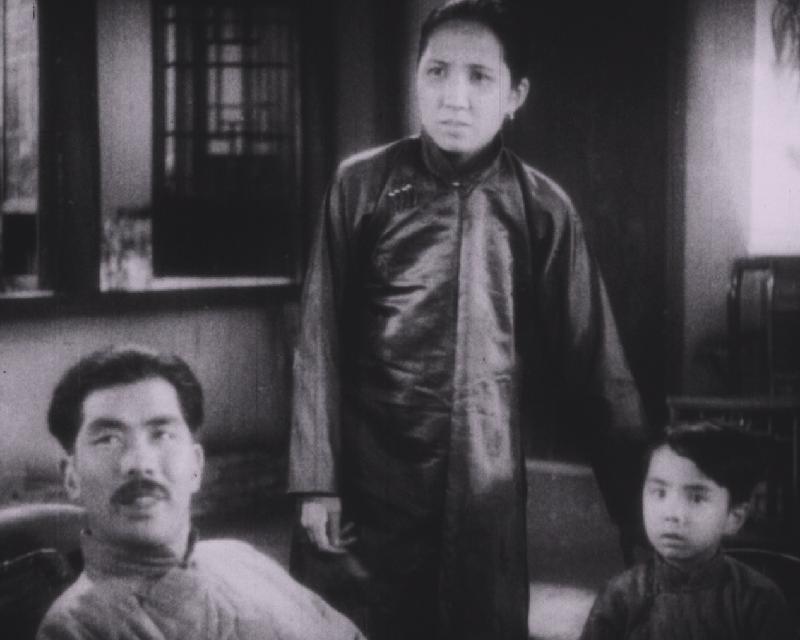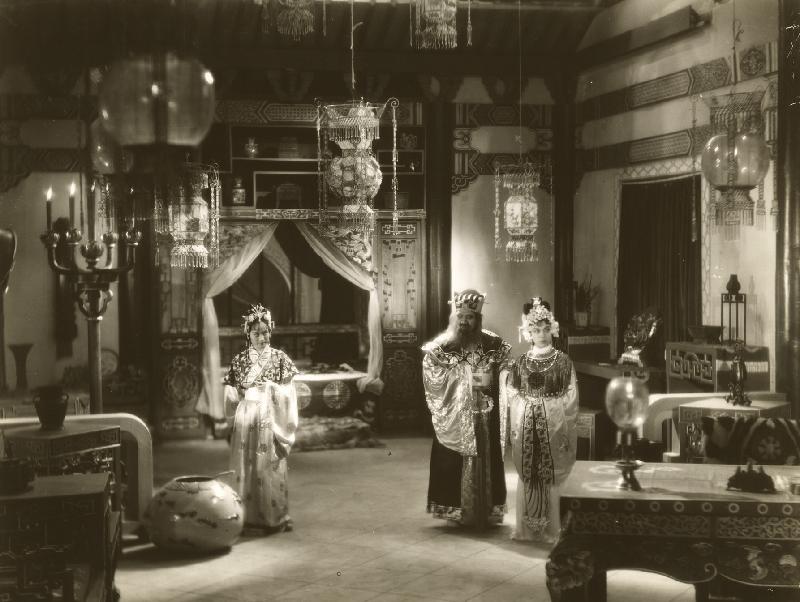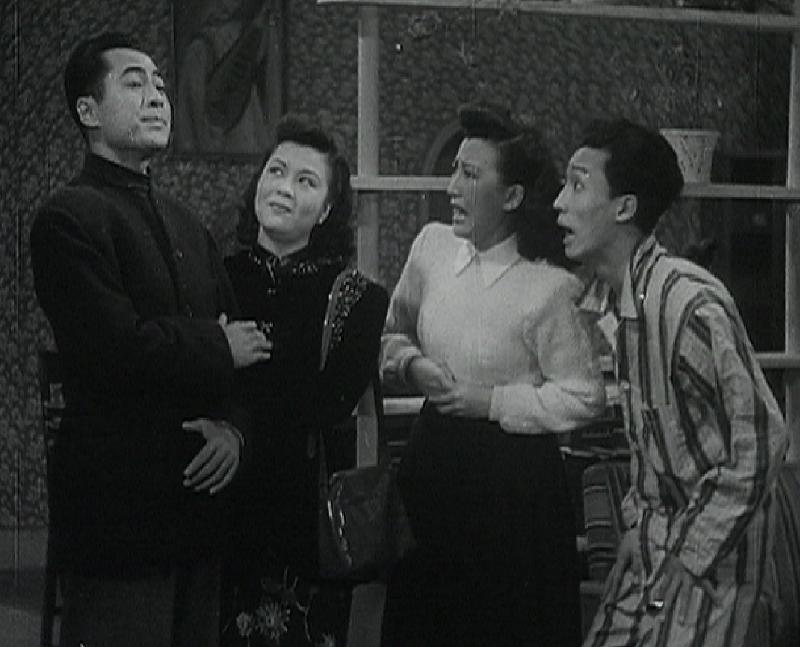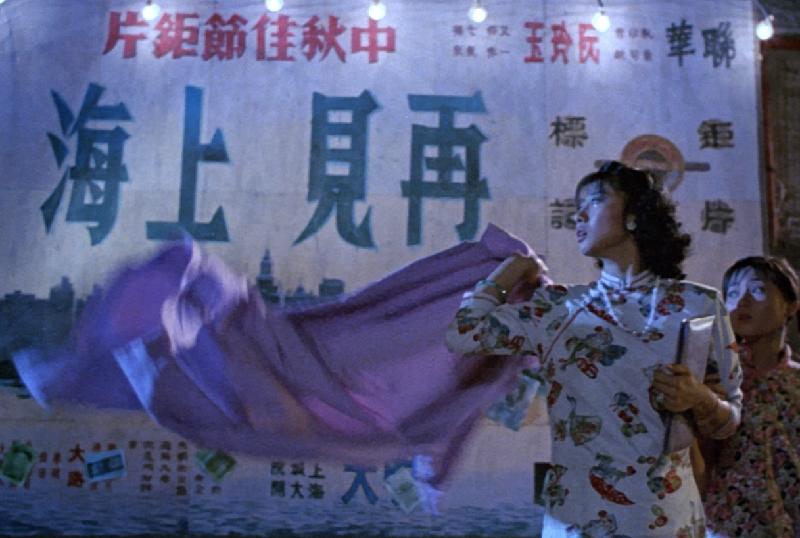The Hong Kong Film Archive (HKFA) of the Leisure and Cultural Services Department will present "One Tale, Two Cinemas" as part of its "Archival Gems" series. From October 6 to May 3, 2020, a total of eight films in connection with Shanghai will be screened. Post-screening talks will also be held to explore the cultural and historical connections between Shanghai and Hong Kong.
Produced by Shanghai's filmmaking elites from the Shaw family’s first film company Unique, the opening film "Struggle" (Restored version) (1933) is believed to be the only surviving film of the company. The film tells of the suffering of two young lovers, who grow up in a village where they are persecuted by their landlord. At the same time the film criticises capitalism and demonstrates support for the War of Resistance.
"Song of China" (1935) was the first Chinese film featuring a full Chinese music score. Avoiding the usual intense histrionics of family dramas, the story instead subtly explores Confucianism. Jointly produced by Luo Mingyou and Shanghai-born Fei Mu, the film reveals the unique aesthetics of the two directors.
Initially filmed in Shanghai, "Sable Cicada" (1938) was the first Mandarin movie produced by Hong Kong. The legendary figure Diao Chan is, for the first time, adapted to the screen and portrayed as a woman of the new era. Unlike other historical films, a sense of amusement is part of the somber narrative, added through music, dances, beautiful stage design and costumes.
"Orioles Banished from the Flowers" (1948), the posthumously released work of director Fan Peilin, entertains the audience with comedic love affairs between the protagonists. The film also stars the renowned songbird Zhou Xuan from Shanghai, who performed the film's songs.
In the mid-1970s, the New Wave cinematic style appeared in Hong Kong. "Shanghai Blues" (1984), directed by New Wave cinema representative Tsui Hark, tells the story of two lovers who fall for each other in Shanghai by making reference to Shanghai film classics, merging common Cantonese movie scenes of the 1950s and 1960s with the comedic style of the 1980s.
Film industries of 1930s Shanghai and 1990s Hong Kong intersected in "Center Stage" (Director's Version) (1992), with Maggie Cheung playing the screen diva Ruan Linyu. Apart from the performance by Cheung, interview footage of the actors discussing their views on Ruan are also included to portray her legendary life from various perspectives. Filmed in Shanghai over a number of months, the movie showcases various studios there.
The making of "The Soong Sisters" (1997) took five years and traversed several locations. Not only did director Mabel Cheung reshape Shanghai, where the Soong sisters were raised, she also highlighted the relationships of the sisters and their husbands. Cheung was also highly appreciated for her choice of qipaos to express the sisters' personalities.
Shot in Shanghai and Nanjing, "Eighteen Springs" (1997) by director Ann Hui centres on a couple from contrasting social classes. From engagement to separation, their broken relationship cannot be restored, even when they meet years later. Hui superbly handled the sense of helplessness portrayed in Eileen Chang's source novel, as well as externalising the nuanced emotions and profound observations of the author.
Each screening will be accompanied by a Cantonese post-screening talk. Hosts include film critics, film veterans and scholars Sam Ho, Jenny Wong, Thomas Shin, Joyce Yang, Poon Hang-sang, Lau Yam, Dr Louisa Wei, Mabel Cheung, Law Kar, O Sing-pui and Ka Ming. Admission is free.
"Struggle", "Eighteen Springs", "Sable Cicada", "The Soong Sisters" and "Orioles Banished from the Flowers" are in Mandarin while "Shanghai Blues" is in Cantonese. "Center Stage" (Director's Version) is in Mandarin, Cantonese and Shanghainese. "Song of China" is silent (with musical accompaniment) with English and Chinese intertitles. "Struggle" has Chinese subtitles. "The Soong Sisters", "Shanghai Blues" and "Center Stage" (Director's Version) have Chinese and English subtitles. The others are without subtitles.
Tickets priced at $55 are now available at URBTIX (www.urbtix.hk). For credit card telephone bookings, please call 2111 5999. For programme details, please call 2739 2139 or visit www.filmarchive.gov.hk.
Follow this news feed: East Asia










